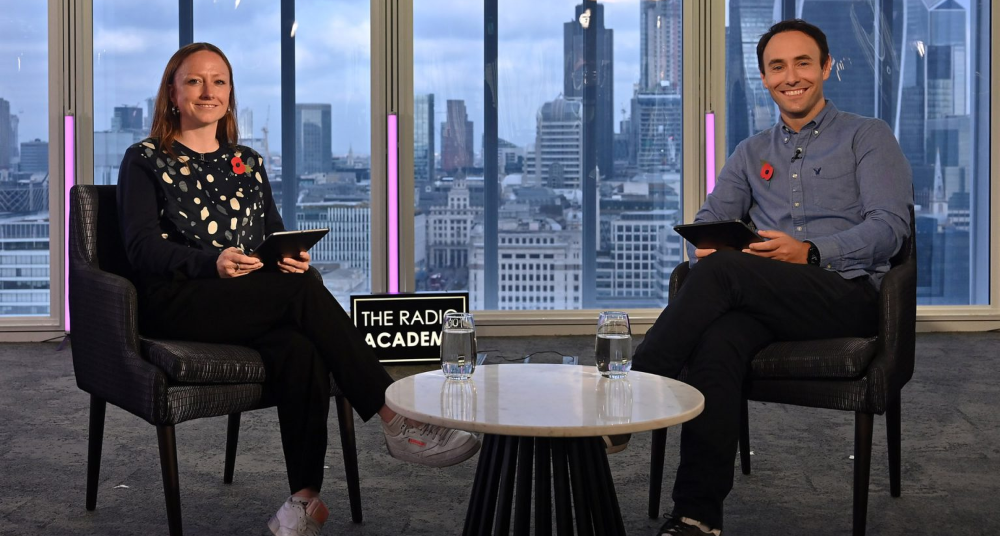Head of BBC Radio 1 Aled Haydn Jones and KISS Content Director Rebecca Frank have similar challenges – they're both reinventing their youth-focussed radio stations for the future.
At the Radio Academy Festival last week, the pair discussed where they look for the next generation of talent, both on and off air, and what they're doing to attract young audiences to their brands.
Here’s what they had to say.
Healthy competition
The UK radio market is very strong. The percentage of young people that radio reaches in the UK is one of the highest is the world. Healthy competition — whether that’s between the BBC and commercial or between commercial and commercial — is what keeps us at our best, on our toes and creatively strong.
Retaining talent
There is a nuanced value exchange with talent and radio brands.
KISS have hires from gaming YouTubers, as well as Jordan and Perri who are very successful on different platforms, so why do they want to work in radio? It’s about developing different audiences and it’s mutually beneficial. Radio by its very nature gives you a completely different relationship with your audience, one that they can’t get anywhere else.
On a more general level, it’s about making sure that people are developing, listening to the presenters ensuring that they feel valued. The value exchange is about development and knowing each other’s goals and distinct needs.
We know doing live radio and loving live radio boils down to more than the money. It’s about the connection with the audience and the buzz you get from doing it every day. The bigger problem is how to keep your youth brand fresh and evolving and reflecting a youth audience that is constantly changing.
Letting talent go
By their very nature, radio stations are very one in one out therefore it’s not always about the person not doing the best job. The evolution of the brand means that sometimes there is a more appropriate person for that given moment.
Radio is more than a two – three-hour job. You need to listen to the station and you need to have passion. It’s about the needs of the station and the tone the station wants to set. Then you start looking at the presenters and assessing if they fit the tone.
Community ties
Community radio is a special thing and KISS has relationships with stations up and down the country. They are a real hotbed — much like student radio can be — for diverse talent of the future. They’re also incredibly diverse in output.
The future
The pandemic has shown us what you get from live radio that you don’t get from streamers or visual on demand content. There will always be space for live radio and, within that, presenting. We know the power of influencers how advertisers are getting messages to customers is via individual as well as brands so streaming services and tech companies in the content strategies are using talent in human beings to do that.
Making room for diverse talent
If you want to reflect a young audience, you need to be diverse. Radio 1’s Christmas Takeover creates additional routes into Radio 1 for emerging talent: presenters will be able to submit their work year-round for Radio 1 teams to hear, with presenting opportunities on the station for the best new voices from across the UK.
Across the division, we ensure that the talent that trains with BBC Radio 1 stays within the cooperation… or goes up through the different channels across the BBC.
Engaging the next generation
Radio is its own industry, therefore it's important that we work together as youth brands. What’s important is that we know for sure what young people want from live radio. We know there is a need, but we need to know what they get from live radio, what they enjoy about live radio. We need to be the best in the world at it if we want to keep young people engaged. It's not about going up against other people and winning it's about where in the mix we are and what percentage of young people get that from us.
The future
The pandemic has shown us what you get from live radio that you don’t get from streamers or visual on demand content. There will always be space for live radio and - within that - presenting. We know the power of influencers how advertisers are getting messages to customers is via individuals as well as brands so streaming services and tech companies in the content strategies are using talent in human beings to do that.





